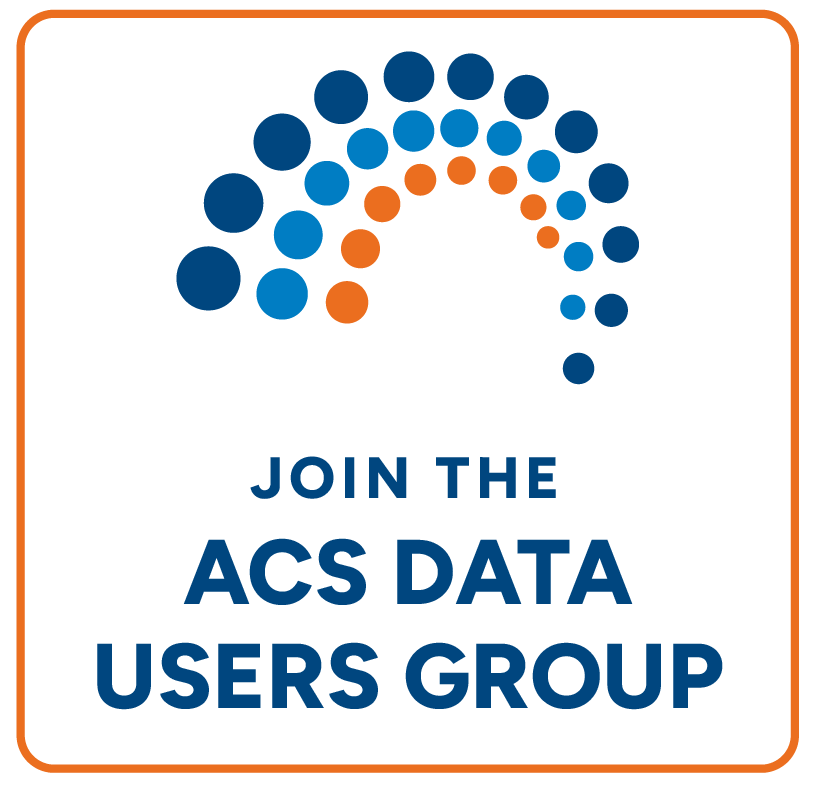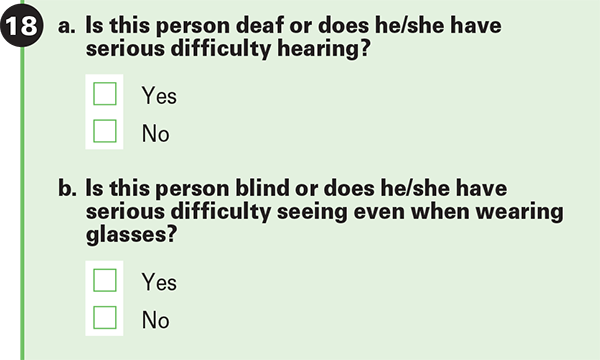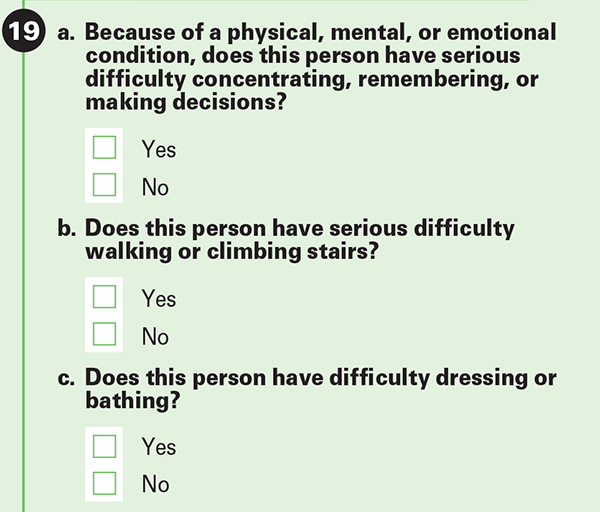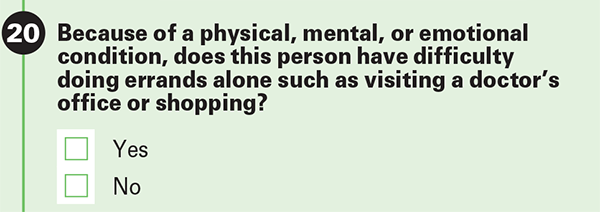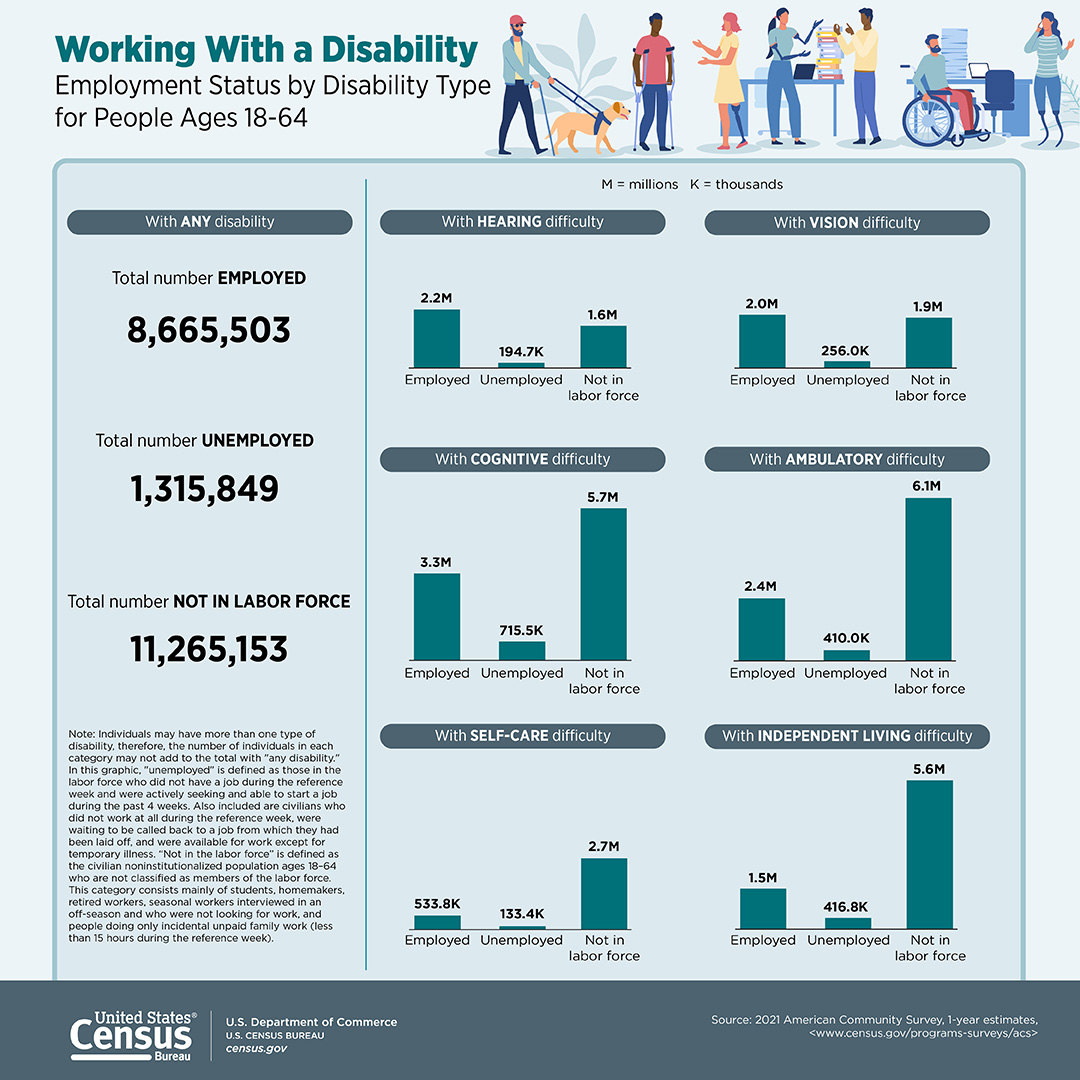Provide Adequate Housing
We ask about disability of household members to understand whether available housing meets the needs of
residents in local communities. When housing is not sufficient or not affordable, disability data help communities:
- Enroll eligible households in programs designed to assist them.
- Qualify for grants from the Community Development Block Grant (CDBG) Program,
the HOME Investment Partnership Program, the Emergency Solutions Grants (ESG) Program,
the Housing Opportunities for Persons with AIDS (HOPWA) Program, and other local and federal programs.
Provide Health Care to Children and Families
We ask about disability status, income, and health insurance status to help communities enroll eligible families in programs designed to assist them such as:
- Marketplace
- Medicaid
- the Children's Health Insurance Program (CHIP)
Community disability data are also used to ensure that these programs are adequately serving eligible families.
Ensure Equal Opportunity
We ask about disability status to help governments and communities enforce laws, regulations, and policies against discrimination on the basis of disability status. For example, disability data determine whether there are health care or public health program disparities on the basis of disability status (Developmental Disabilities Assistance and Bill of Rights Act of 2000).
Provide Assistance to People with Disabilities
We ask about disability to help local officials provide programs and services that:
- Enable older adults to remain living safely in their homes and communities (Older Americans Act).
- Provide services and assistance to people with a disability, such as financial assistance with utilities (Low Income Home Energy Assistance Program).
Understand Changes
We ask about disability and other topics to inform researchers, advocacy groups, and policymakers on whether people with disabilities have the same opportunities in education, employment, voting, and home ownership. Communities use data on the prevalence of various types of disabilities to ensure that they can meet needs during weather events, disasters, and public health emergencies.

